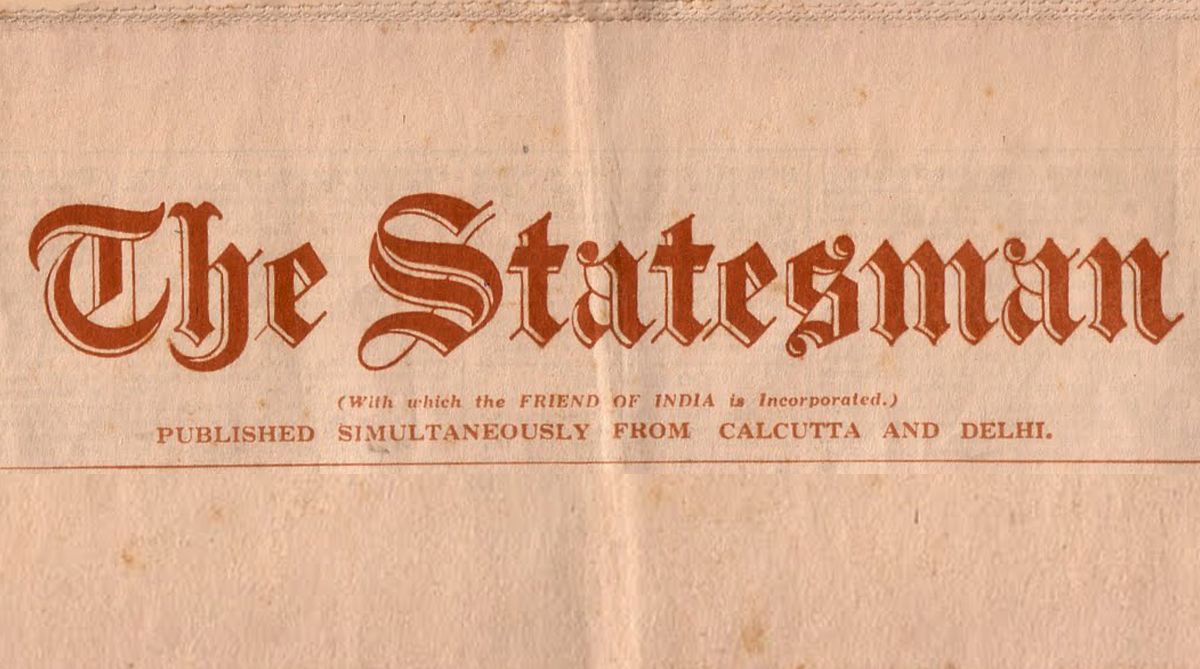A New Day, A New Dawn
There is a surprise for the readers. A special Poila Boishakh gift from none other than West Bengal chief minister Mamata Banerjee. Who has written a piece for this special edition.
On this day a century ago, these were some of the news items The Statesman readers got to read about India and the world

OCCASIONAL NOTE
The political extremists of the type which has captured the Bengal Provincial Conference and committed it to the assertion that the Montagu scheme “does not present any real step towards responsible Government,” appear likely to find themselves a very small rump of what, to begin with, was not a very large political movement in this country.
Even the Tilak organ, the Maratha, blesses the Montagu scheme, or is at least prepared to give it fair and intelligent consideration. It recognises that the report states and reiterates with unmistakable emphasis and clarity the intention of the British Government to confer self-government on India and gives Mr. Montagu credit for “having designed a system of immediate administration and a progressive reform which must sooner or later enable India to reach the ideal on which India has set its heart.”
Advertisement
Only the rabid organs of the New India and Patrika type take a hostile line, but to their opinions the whole Congress movement in this province stands, in name at least, committed.
The violence and thoughtlessness of the extremists’ behaviour on this occasion will become more evident as the days pass. If the Montagu report has no other result than to isolate them and throw into clear relief their blindness to the real factors in India’s political progress, it will have served some purpose.
THE REFORM SCHEME
The Hon. Mr. Yakub Hassan, Secretary of the Madras Presidency Moslem League, in a communication to the press on the reform proposals, says he is gratified to see that some of the things which the Congress and the League have been agitating for are conceded, as it were, by a stroke of the pen.
The modification of the control of Parliament and the Secretary of State, the placing of the salary of the Secretary of State on the Home estimates, the appointment of a select committee of the House of Commons for Indian affairs, and the establishment in India of a Privy Council, – all this is, indeed, welcome.
After reviewing the scheme, Mr. Yakub Hassan concludes:- It will thus be seen that the scheme on the whole is not so bad as to deserve the wholesale condemnation meted out to it in certain quarters, nor is it so perfect as to be acceptable without some important improvement and modifications.
He believes the proposals to be the result of a sincere desire, no doubt created by the comradeship of the war, on the part of the British nation to make India contented and strong; and this desire is translated into practical proposals by Mr. Montagu.
BRITISH BITES
A British communiqué says: Scottish troops captured Meteren village, gaining all objectives and capturing over 300 prisoners and a number of machine-guns.
Under cover of this operation the Australians advanced their line a short distance southward of Meteren, taking over 80 prisoners and 10 machine-guns. We also took a few prisoners in raids and patrol encounters in the Nieppe forest sector.
Our aviators bombed many targets, including dumps at Armentieres and Mericourt, railway stations at Rosieres and Bray, and the docks at Bruges and Ostend. We brought down nine aeroplanes.
Seven British are missing. Our night-fliers dropped eight tons on the Mons-Valenciennes railway, also six tons on the Courtrai, Seolin and Lille railways. Two aeroplanes did not return.
NEW MINISTERIAL APPOINTMENTS
The Press Bureau announces that Mr. Worthington Evans has been appointed to succeed Lord Robert Cecil as Minister of Blockade. Lord Robert Cecil has been appointed Assistant Foreign Secretary.
Major-General Seely has been appointed Parliamentary Secretary to act as Deputy for the Minister of Munitions, and Mr. Waldorf Astor has been appointed Parliamentary Secretary to the Food Ministry.
Owing to the increasing burdens of the Foreign Secretary, Mr. Balfour has expressed a wish that Lord Robert Cecil should take a larger and more responsible part in the work of the Foreign Office.
SERIOUS PROBLEM FOR GERMANS
The latest news early this evening is that the French are still in the outskirts of Soissons. In northern sector they have captured 7,000 prisoners and thirty guns.
The enemy is tenaciously resisting in the centre and south, where, however, eighteen guns and many thousands of prisoners have been taken. It is impossible yet to judge the full effect of the counter-stroke, but it may profoundly alter the whole position in the Champagne and Rheims front.
The French are now bombarding important enemy roads and communications along which German reinforcements, munitions, and supplies have to come to the Rheims salient.
The cutting of the railway prevents effective co-operation between the Germans north and south of the Aisne, and it is going to be a serious problem for the Germans to remain in this salient.
Another important factor is that the Crown Prince’s reserves must be gradually being absorbed and an adjustment of their line will be necessary if the French retain their gains.
Advertisement